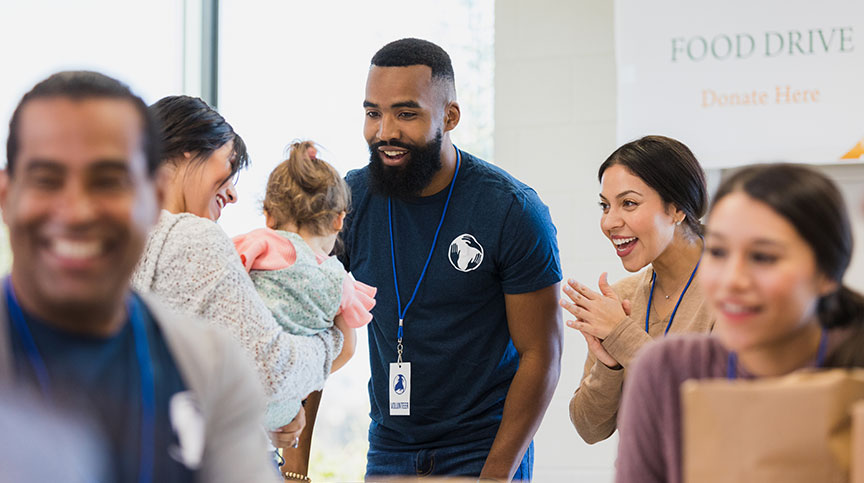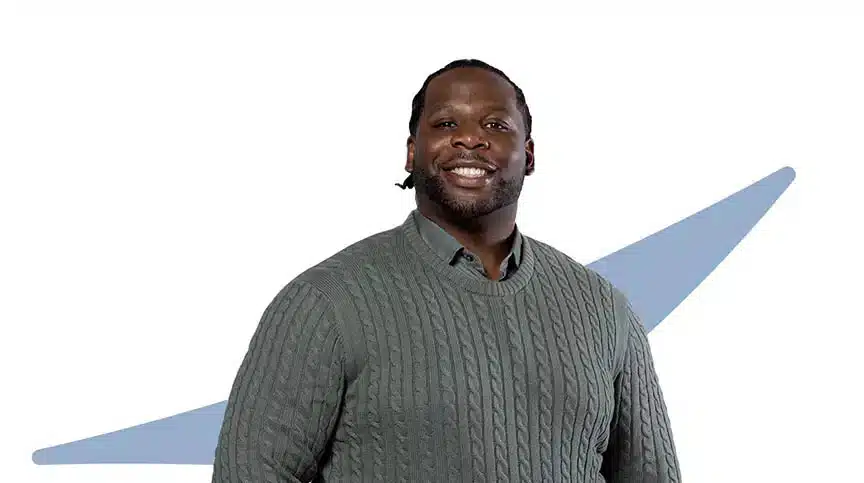Introduction
Charitable giving soared to a record-breaking $471 billion in 2020, according to Giving USA. Following this spike, many predicted philanthropic activity would return to pre-pandemic levels in 2021, yet charitable giving remained heightened in 2022, though donor retention and dollars given are on the decline in 2023.
For nonprofit executives and fundraising professionals, this shifting landscape offers both opportunity and challenge. The polarities of increased interest in philanthropy, combined with evolving donor values and pressures on internal nonprofit resources, has left many of us wondering where best to focus our time and energy.
Yes, Fundraisers Are Leaders
Before we continue, it is important to note that as a fundraising professional, you are a leader.
You have chosen a career dedicated to raising money to further a mission or cause. You do a job that many people profess to dread because you care deeply about bringing people together to solve critical social issues.
And while this work brings you into contact with many community leaders and donors, that does not preclude your own leadership. In fact, it requires it.
At CCL, our research has consistently revealed that leadership is both a lever for increasing community impact and a framework for navigating emerging environments. In this article, we will explore how the core leadership skills of communication, influence, learning agility, and self-awareness can help those in nonprofit fundraising leadership roles create greater impact.
Fundraising Leadership Success Starts With 4 Skills
1. Communication: Listen Well.
No doubt you have read more than one fundraising guide that urges you to listen. It’s one of the top skills fundraisers depend on to help align donor goals with the nonprofit mission. Our own research shows that when leaders use active listening skills, we establish trust, demonstrate empathy, and help create psychological safety. But how do you know what to listen for?
Focus your listening by looking for facts, feelings, and values:
- Facts are what people say – things you can validate or prove. When we listen for facts, we understand what subjects matter to our donor.
- Feelings are the how of the conversation. What nonverbal cues are you picking up? These tell you how those subjects made someone feel or what sentiments they invoked.
- Values are the why. Why is this topic important to this donor? What does it mean to them and how does it impact how they show up in the world and in their philanthropy?
When fundraising leaders listen for all 3 elements of the conversation, we are better prepared to understand our donors and meet their needs. We gain not only insight into their philanthropy, but also additional opportunities to show that we value them and their philanthropic goals.
TIP: At your next meeting, write FACTS, FEELINGS, and VALUES at the top of your notes. As you listen to the other person speaking, pay attention for each, and record important points in the conversation, drawing arrows back to each word at the top to make connections. What do you notice matters most to this donor?
Access Our Webinar!
Learn more about what fundamental skills are necessary for fundraising leadership, and how to use them to further your mission when you watch our webinar, Fundraising Leadership: 4 Fundamentals for Success.
2. Influence: Honor Differences.
Fundraising leaders may wrestle with the idea of influence. We know we need to leverage it to build resources for our mission, but discussing tactics to influence others may make us feel uncomfortable. Instead, focus on how and what donors want to keep their needs at the center.
Like communication, influence is less about you, and more about the other person. Everyone has preferred ways to receive information, so when you use the right method for the person, you honor those differences and celebrate unique perspectives. At CCL, we call this using the head, heart, or hands to influence:
- Head: Logical arguments appeal to people who are moved by facts, figures, and intellectual discourse.
- Heart: Emotional appeals and stories that illustrate your mission inspire people who lead with values.
- Hands: Collaborate with these individuals, either through conversation or active volunteerism, and help them get involved directly.
So, to succeed in a nonprofit fundraising leadership role, consider what matters most to your donor: statistics and facts about your programs, or stories of impact? Or perhaps they get the most joy through hands-on volunteer work? Effective influencing is really just understanding what matters most to the listener, so you can honor their preferences.
TIP: Don’t know your donor’s preferred style? Deliberately include examples of all 3 tactics in your next conversation, and watch for where you donor engages most.
3. Learning Agility: Learning from Experience.
Agility is the ability to change course. Being nimble enables us to respond to shifting community needs, a new generation of donors, or an evolving nonprofit mission. Change is inevitable; it’s what you do after it that’s most important.
When we have learning agility, we don’t go from success to success. How often have you heard that fundraisers hear No more than Yes? While we know this rationally, we often forget when faced with rejection. But it is impossible to grow without it.
You can’t learn more, do more, and help more if you keep being successful. It sounds counterintuitive, but we learn more from our failures than our successes. Capturing and applying those learnings is crucial to your fundraising and, in turn, supporting your nonprofit mission.
TIP: Take time at meetings to celebrate not just wins, but also what you learned when you were not successful. It’s only a failure if you don’t learn from it. Celebrate learnings as much as success and use experience to fuel your own leadership development.
4. Self-Awareness: It Starts With You.
So far, our fundamental 4 leadership skills have focused on others — we listen, influence, and learn from our experiences and those around us. And it is in our nature to focus on our clients, donors, and community; that is, after all, why we do what do.
So why is self-awareness also an essential skill for fundraising leader success?
“Be the change you wish to see in the world” is a quote that nonprofit leaders take to heart. Not only is this statement directly applicable to social sector work, but it is also a key to how we relate to the people we seek to inspire.
To effectively persuade others, we must first know ourselves and how we like to communicate, influence, and learn. If you are a person who talks more about facts, you might approach a donor that way. If you are someone who wants to get involved in volunteer work, you might tend to offer those same opportunities. Self-awareness helps you know your natural preferences, so you can better understand and adjust to those of others.
Self-awareness can be the most challenging skill to develop, but it can also serve as a foundation for strengthening all your other leadership skills.
TIP: Ask others what they notice about your communication, learning agility, and influence styles and preferences. Then reflect – how do you see yourself? Work to boost your self-awareness if needed.
Ready to Take the Next Step?
As a nonprofit ourselves, we’re guided by purpose and fueled by passion. We would love to partner with you for nonprofit leadership development that equips your executives, staff, and fundraising leadership team with fundamental leadership skills training and helps them unlock their potential and better support and advance your mission.









